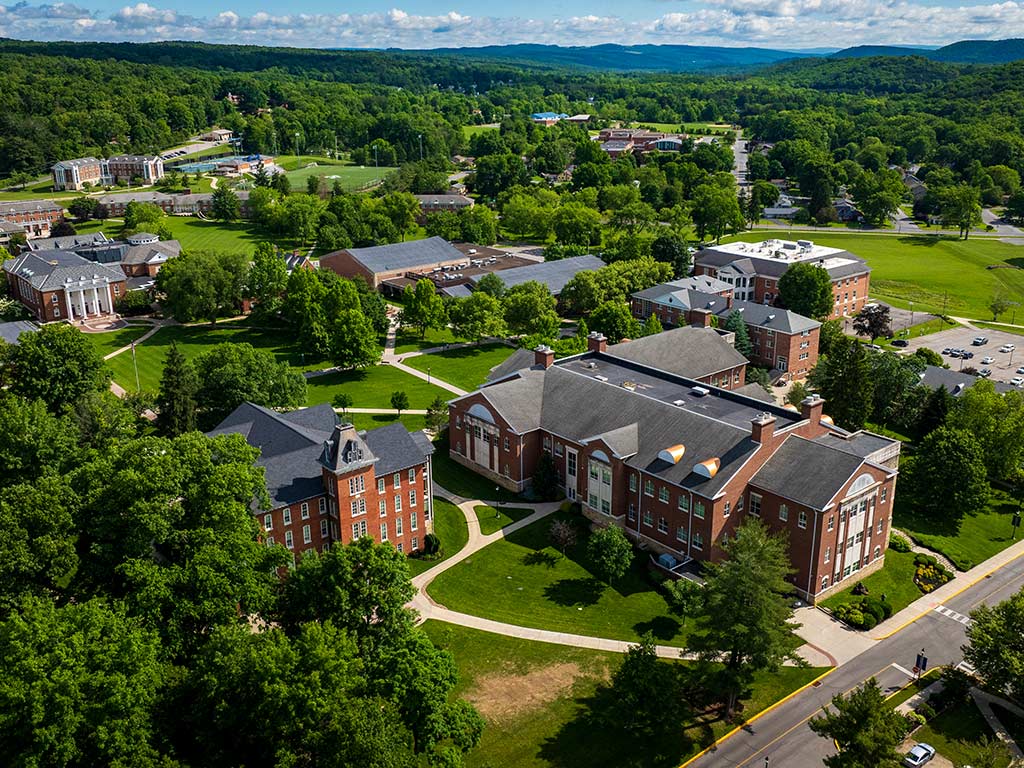
Life can be stressful. It is important for wellbeing to identify and frequent one
or more personal spaces where you can feel at peace. A personal space is valuable,
one might even say sacred. You may recognize it immediately or cultivate one over
time. It is a place where you feel you belong and where you can reflect, observe,
and ground in the present. Wellbeing can be cultivated through the practice of finding,
establishing, and experiencing balance within oneself in full range of thought and
feeling without self-judgment. An important human experience is to be. Your personal space is where that happens with greater ease.
With this in mind, the Comfort Zones project was conceived as a resource for wellbeing
for students, faculty, and staff. We have identified or created a variety of spaces
on campus, some of which are available 24/7, where one can de-stress and center. Some
of these lend well to enjoying activities in groups, whereas others provide for solitary
introspection. In addition, there is a wide range of wellness and support modalities
available in the community.

Life can be stressful. It is important for wellbeing to identify and frequent one
or more personal spaces where you can feel at peace. A personal space is valuable,
one might even say sacred. You may recognize it immediately or cultivate one over
time. It is a place where you feel you belong and where you can reflect, observe,
and ground in the present. Wellbeing can be cultivated through the practice of finding,
establishing, and experiencing balance within oneself in full range of thought and
feeling without self-judgment. An important human experience is to be. Your personal space is where that happens with greater ease.
With this in mind, the Comfort Zones project was conceived as a resource for wellbeing
for students, faculty, and staff. We have identified or created a variety of spaces
on campus, some of which are available 24/7, where one can de-stress and center. Some
of these lend well to enjoying activities in groups, whereas others provide for solitary
introspection. In addition, there is a wide range of wellness and support modalities
available in the community.

Life can be stressful. It is important for wellbeing to identify and frequent one
or more personal spaces where you can feel at peace. A personal space is valuable,
one might even say sacred. You may recognize it immediately or cultivate one over
time. It is a place where you feel you belong and where you can reflect, observe,
and ground in the present. Wellbeing can be cultivated through the practice of finding,
establishing, and experiencing balance within oneself in full range of thought and
feeling without self-judgment. An important human experience is to be. Your personal space is where that happens with greater ease.
With this in mind, the Comfort Zones project was conceived as a resource for wellbeing
for students, faculty, and staff. We have identified or created a variety of spaces
on campus, some of which are available 24/7, where one can de-stress and center. Some
of these lend well to enjoying activities in groups, whereas others provide for solitary
introspection. In addition, there is a wide range of wellness and support modalities
available in the community.
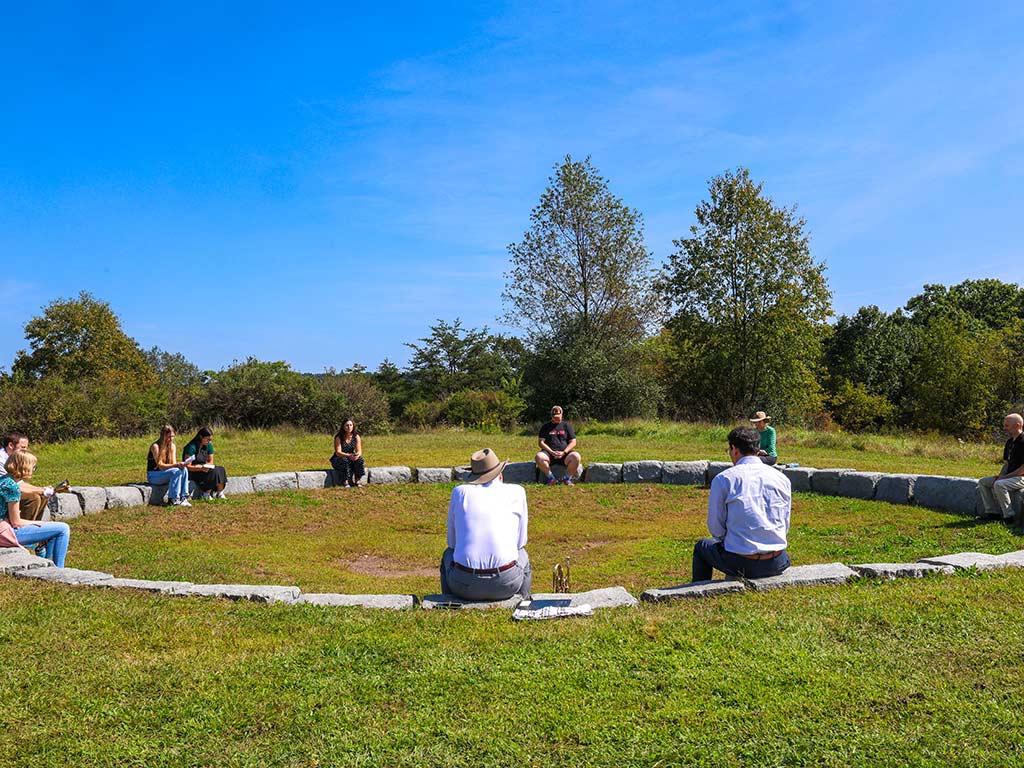
Juniata College Peace Chapel - Group and Individual Sites
Juniata is privileged to have a two-part open-air Peace Chapel in honor of Elizabeth Evans Baker and designed by architect and sculptor Maya Lin in 1989.
Located off Warm Springs Avenue, the Peace Chapel is accessed via a self-guided walk. The main Chapel features 24 granite stepping stones leading to a 40-foot circle of 53 granite blocks. The individual Chapel has a large circular stone atop a wooded hill. An outdoor library near the parking area offers free copies of several interfaith prayer and peace resources.
The Peace Chapel entrance and parking is located at: G242+5W Huntingdon, Pennsylvania
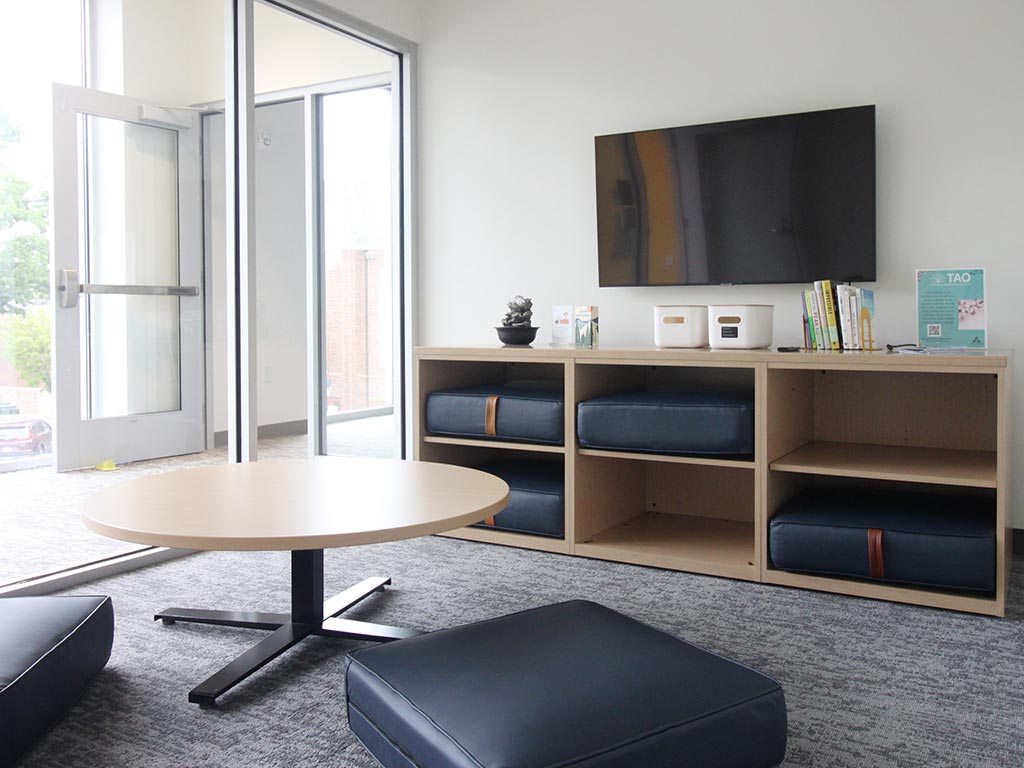
The Statton Learning Commons Meditation Room
Located on the second floor of the Statton Learning Commons, this space offers a kinetic water fountain, sound machine, affirmation cards, and meditation books.
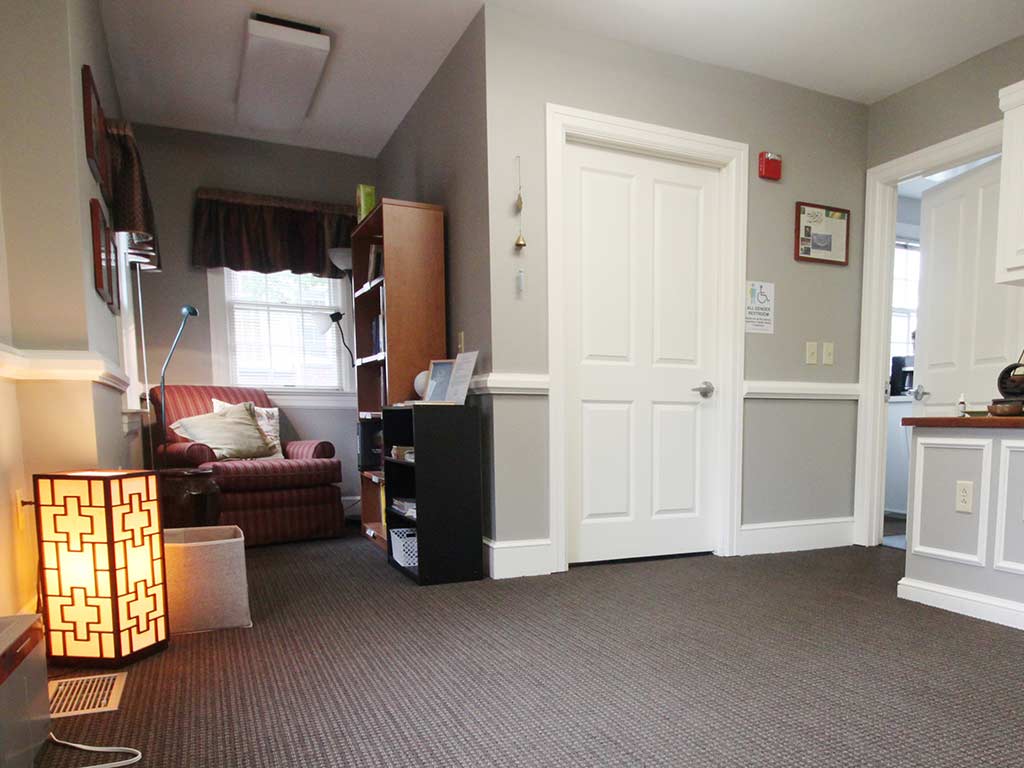
The Unity House Meditation Room
The Unity House meditation room features an interfaith library, prayer rugs, altar space, and introspective tools. It is the only space on campus where the burning of candles and incense is allowed. The space is reservable by contacting campusministry@juniata.edu.
Hours
- Daily from 8 a.m. to Midnight
The Unity House is located at 1905 Moore St, Huntingdon, PA 16652
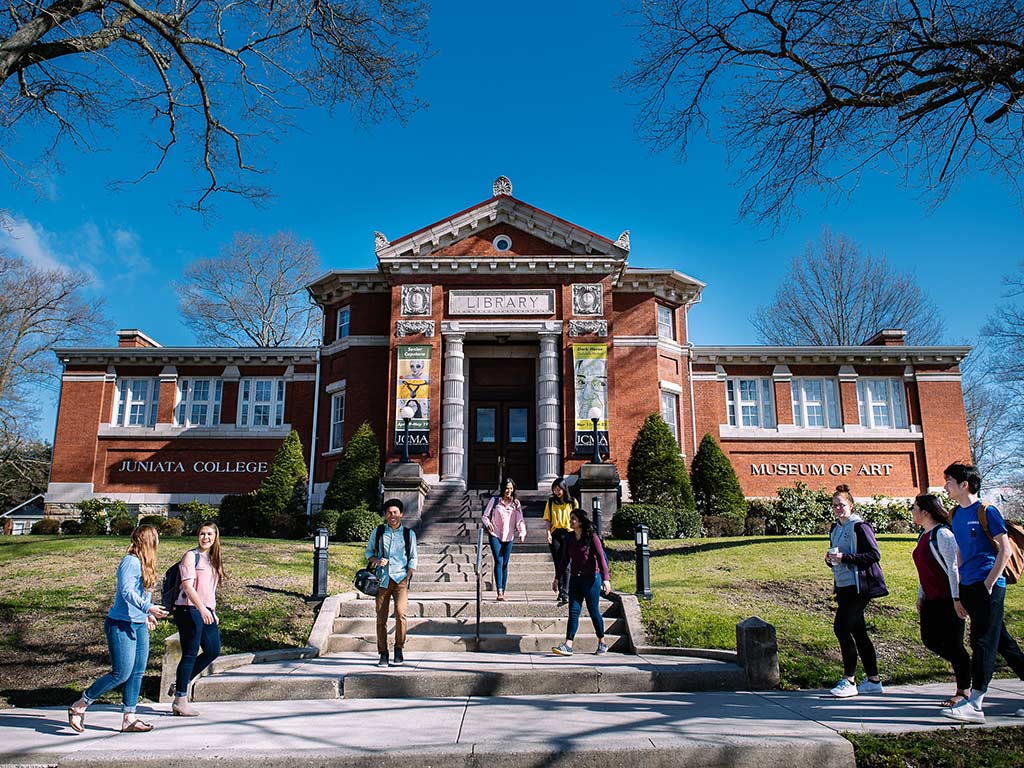
Juniata College Museum of Art
More than just galleries, the JCMA offers creative stress-relief activities, communal tables, art kits, and floor seating areas.
Hours
- Monday through Thursday: 1 p.m. to 8 p.m.
- Saturday: 12 p.m. to 4 p.m.
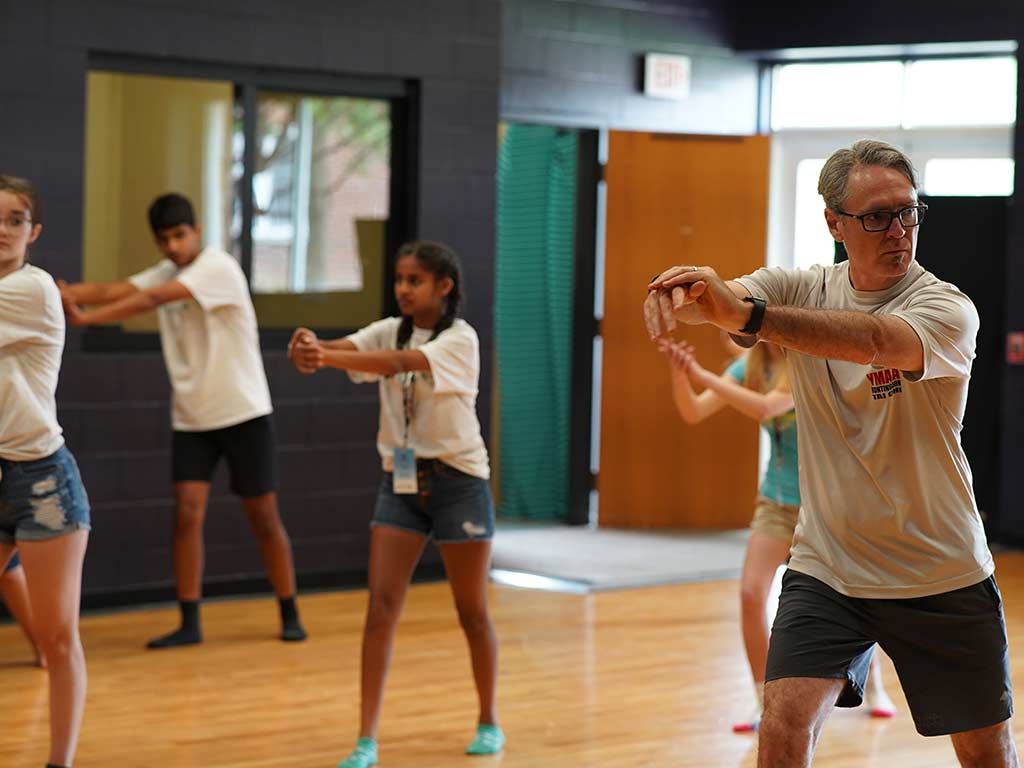
Mindfulness Activities
Join Mindful Mondays, and explore Taiji and Tai’ Chi Gung classes.
- Mindful Mondays: 12:30 p.m.
- Taiji: Click here for more information.
- Tai’ Chi Gung: Click here for more information.
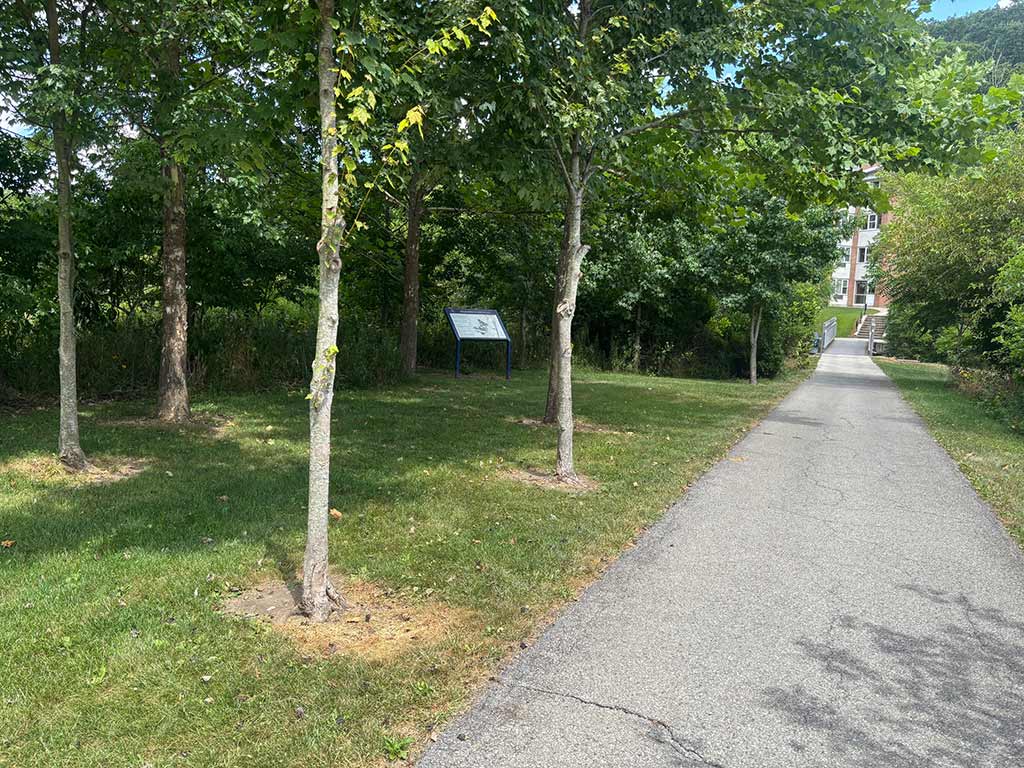
Outdoor Spaces
The Riparian Buffer (photo), located at the east end of campus, provides a peaceful nature walk. Also available behind the Brumbaugh Academic Center are a disc golf course and some benches for relaxation at the top of the hill.
The Campus Life Office loans yoga and camping gear and the Raystown Field Station offers kayak and canoe rentals for further exploration in the area's abundance of trails, rivers, parks, and State Forests.
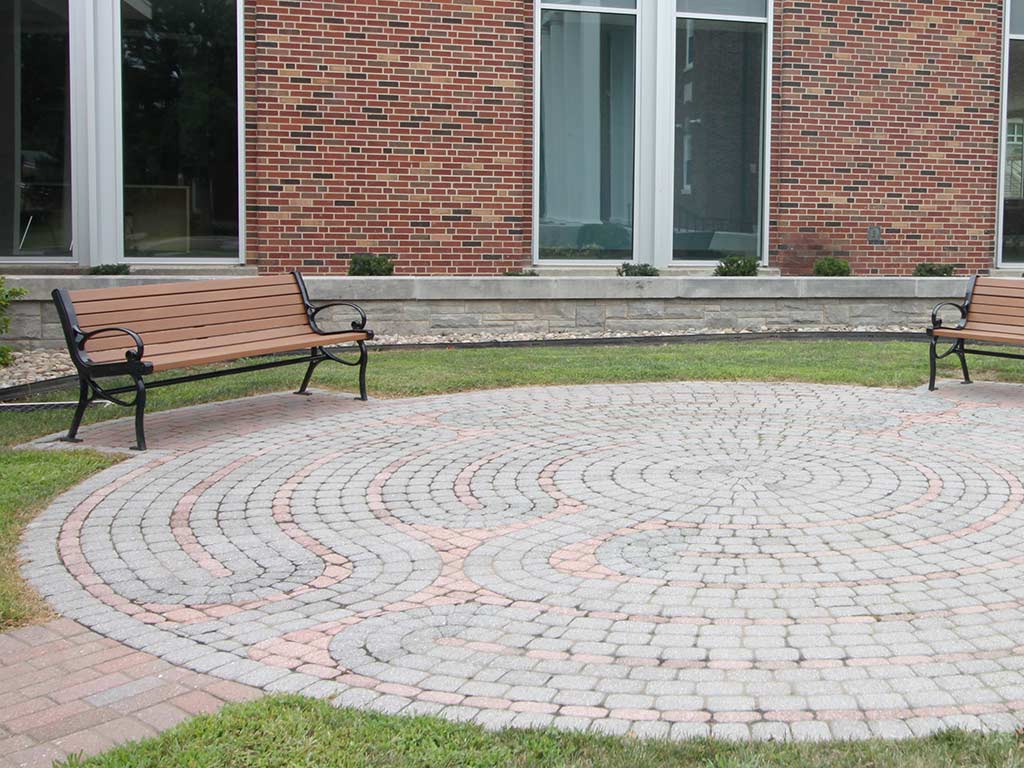
The Labyrinth
Located outside the Statton Learning Commons. A circular walkway that leads to the center and out again for meditation and self-reflection.
Community Resources in Huntingdon
- The Natural Connection
- A Simple Escape Massage Therapy
- Procure Therapy
- Roots and Branches Massage
- Natures Kēp & Clear Fire Counseling
- Intersections Spa
Mental health services: Comprehensive Resource List
FIRST Center: Free services for recovery and support
 skip to content
skip to content




